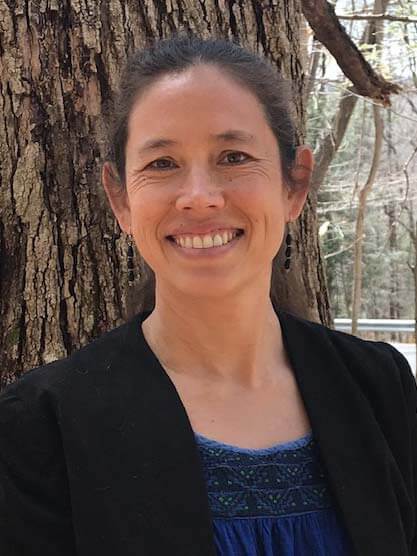My experience as the adult child of older parents in a natural disaster began with a text from a friend: “Are your parents OK?” I scanned the news and was horrified. There were countless images of their picturesque western North Carolina small town and others like it, seemingly wiped away by walls of rushing brown water. My calls went to voicemail, the local police station’s website said there were “hundreds missing” (a phrase I won’t soon forget), and first responders had suspended well-being checks. I wouldn’t find out if they were OK—or even alive—for 4 long days, when I received a single text message:

I wouldn’t get any other communication for another week.
When Hurricane Helene slammed into the Florida coast, no one predicted that the fiercest of its destructive forces would be unleashed 400 miles north, in the mountains of western North Carolina, where my father and stepmother live in a lovely home on a hillside next to a stream. I had been through serious rainstorms at their home before, but it was clear from reports that this was not simply seasonal flooding, but region-wide devastation. Make no mistake, my father and stepmother are tough cookies. They had been through all manner of hair-raising calamities, but nothing like this. Also, they are in a different phase of life. My dad, although physically hardy, is living with dementia, and they are both getting frailer and more accident-prone even in the best of situations—and this was far from the best of situations. Frustratingly, there was not a thing I could do about it—no cell phones or landlines, no flights, even the highways were closed, making driving down impossible. For my father, the situation was extremely confusing. Their old generator wouldn’t start, so for weeks they lived what one might call a primitive life; rising and going to bed with the sun, rarely bathing, and driving as little as possible to avoid depleting their only tank of gas. Since there was no food to buy, they ate whatever the church down the street gave them and washed their dishes in the creek. Thankfully, hundreds of bottles of water and Clif Bars later, they made it through.
If there’s one lesson they learned, it’s this: Start preparing now. It’s never too early to put together an emergency kit, plan for contingencies, and protect yourself and loved ones. Disasters can and will happen, but being prepared can make all the difference – for you and for the others you may be able to aid in a crisis. According to the Administration for Community Living: “At a minimum, each individual (with the assistance of his or her caregiver, if necessary) should create a kit of emergency necessities. This should include medication, food, water, batteries or chargers, and any supplies that pets or service animals may need. It also should include the locations of the nearest shelter.” For my stepmother, even the small amount of potable fresh water they had stored proved invaluable to helping them weather the first couple days before disaster relief personnel could bring in fresh water (and when they did, it was by helicopter).
In our region, emergency planners and first responders are proactive in accounting for the unique needs of older adults during a crisis. For example, the Franklin Regional Council of Government recently received an award of $40,000 from the Next50 Foundation to create an emergency response plan for vulnerable older adults and those with access and functional needs in Franklin County municipalities. The backbone of this effort is the development of a registry system where older adults who rely on life-saving equipment, such as oxygen tanks, can voluntarily register to ensure no one is left behind in a disaster. Built over the course of a year, this system will allow local municipalities to know who might need extra help, giving first responders crucial information to prioritize assistance and potentially save lives during an emergency. According to Dan Nietsche, FRCOG Emergency Preparedness Program Manager, “A few communities already have a system like this in place. The goal of this project is to take the best ideas already in use and make them accessible and uniform across Franklin County. Franklin County municipalities rely heavily on helping each other during incidents, so having this type of information in a familiar format will reduce response time.”
For my parents and anyone else caught in the sudden chaos of a disaster, life gets turned upside down in the space of a day—or even a few minutes. In the hours, days, and weeks that follow, our understanding of community and resilience will be both tested and re-affirmed. Fortunately, the people of Franklin County and North Quabbin are a hardy and resourceful stock. The work we do to prepare now—as individuals and communities—will make all the difference should the unthinkable happen again.
Resources:
- FEMA Guide to Emergency Preparedness for Older Adults: A comprehensive guide with practical steps to ensure safety.
- AARP Articles on Disaster Preparedness: Tips and resources specifically tailored for older adults.
- Western Massachusetts Individuals Requiring Additional Assistance (IRAA) Website: Information on support for vulnerable populations in the region.





